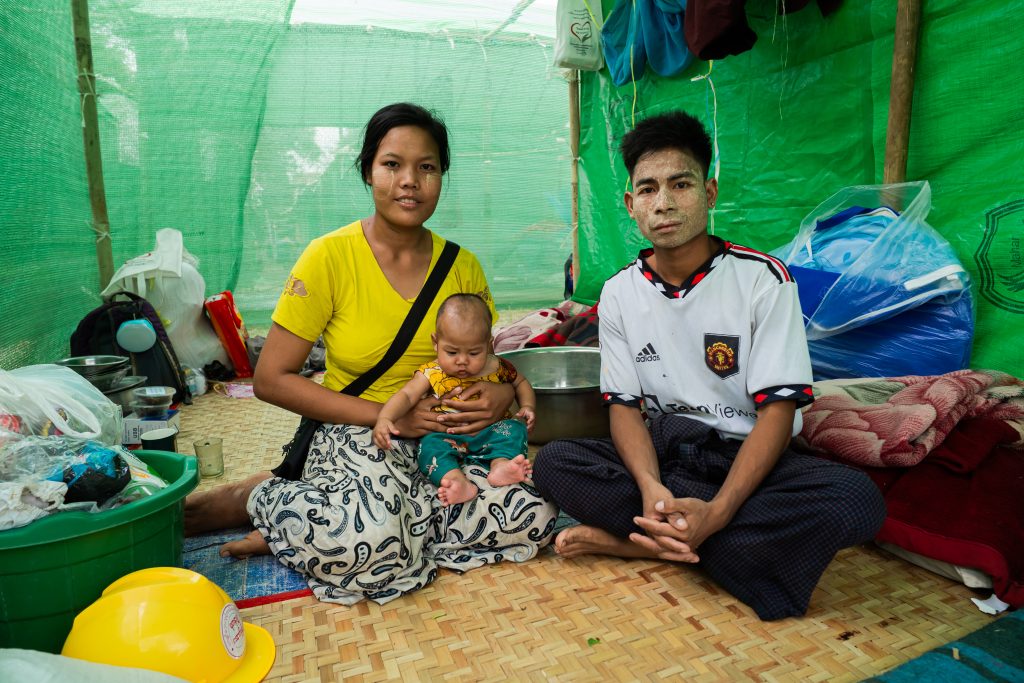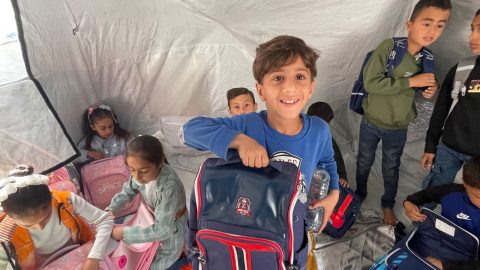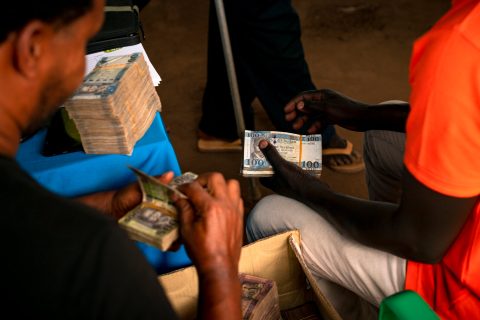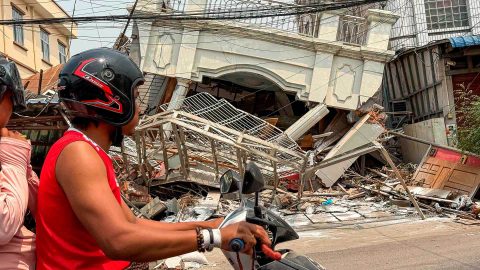Just a month ago Dmitriy, 5, was playing with his friends. Now, the phone is alerting his family about air strikes in Ukraine
Four weeks of war, and over three million people have fled across the borders of Ukraine. A Ukrainian mother believes the next two months are crucial; she must be able to find work and send her kids to school. Finn Church Aid is helping refugees from Ukraine together with a Hungarian partner organisation.
“I HAVE SWEETS and a bottle of water, and here’s my cat. In Ukraine, I had a real cat, too,” says 10-year-old Maryanna whilst unzipping her light-coloured backpack in a playroom for refugee children set up at the airport in Budapest.
Maryanna takes out a pencil case and opens it. It’s full of colourful wristbands, necklaces, and rings. She has been busying herself with making baubles during her almost three-week long escape from Odessa in the south of Ukraine to Budapest, Hungary.
Maryanna, her sister Yelizaveta (5), mother Vironika, and grandmother Svetlana left their hometown soon after Russia invaded Ukraine on 24 February 2022.
During the first three weeks of the war, more than three million Ukrainians have fled to the surrounding countries, 1.5 million of them children. On top of this, there’s an immense number of internally displaced refugees within Ukraine, who’ve tried to make their way from the eastern parts of the country to the west.
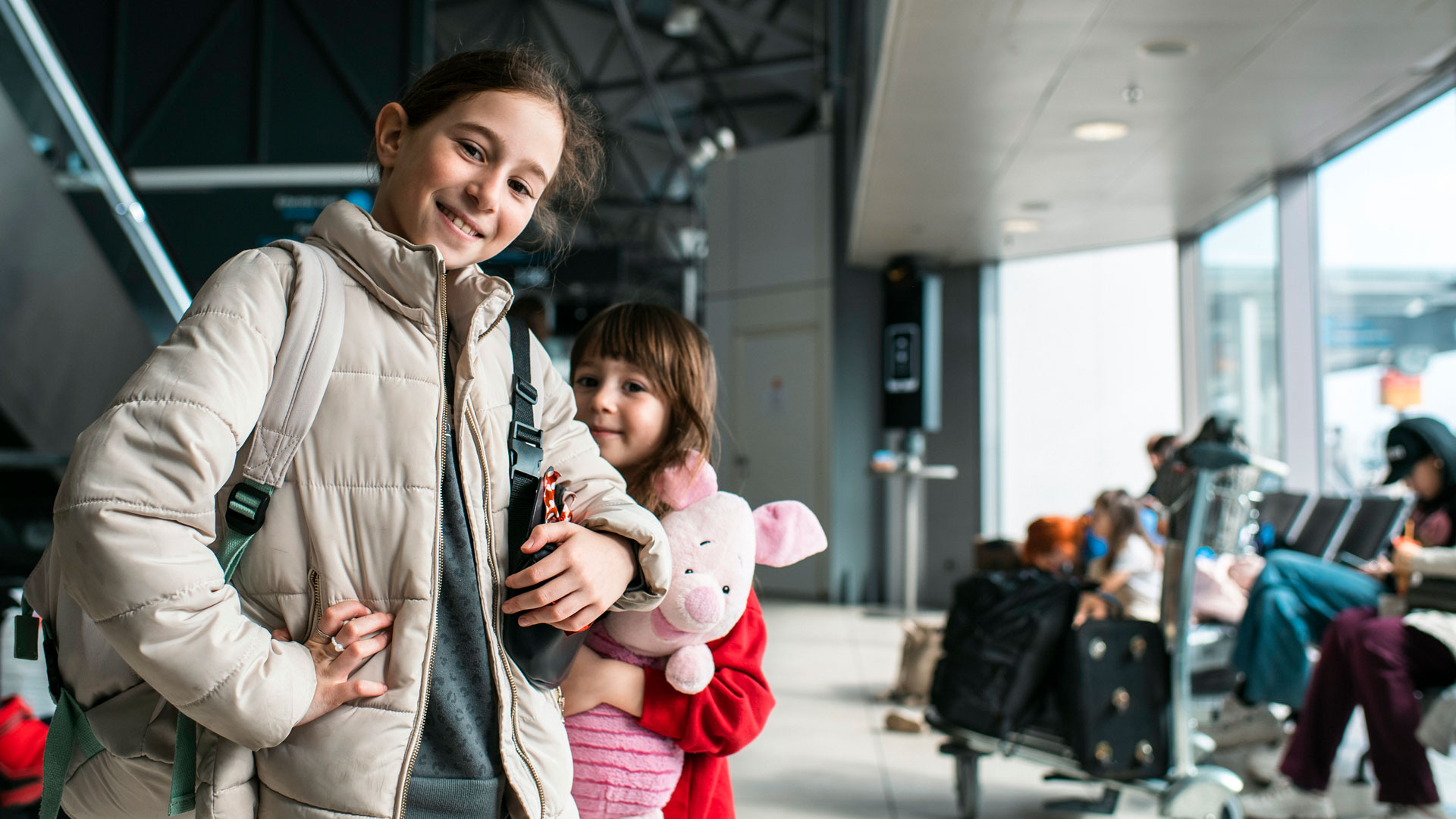
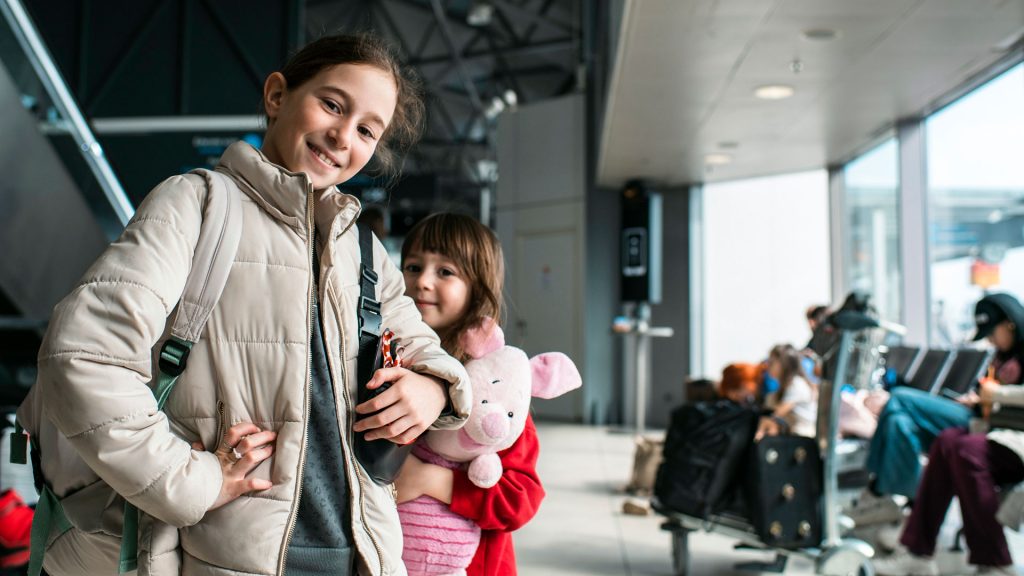
Some of them have found a place to stay with friends and family, some spend the nights at refugee shelters, and some are waiting for a lift at airports and railway stations. Many have left their homes in a hurry and packed only the most essential items.
“I packed everything myself. And by the way, I’ve made this myself, too,” Maryanna says, proudly pulling out of her backpack a small, dotted pillow.
She says she laid hear head on the pillow again last night, when the family was travelling from Krakow to Budapest airport. The journey was long, but Maryanna tells she had a good night’s sleep. She describes having curled into a ball on two seats, her head on her self-made pillow.
A bed, food, and something to drink
There’s another family in the playroom for refugee children at the airport. Mother Kate Pugachova and her sons Daniil (8) and Dmitriy (5) are playing Uno.
Kate says the family had spent the previous night in a makeshift bed in the corner of the playroom. There are other facilities with beds for refugees at the airport.
“However, last night there were a lot of small children crying and making noise,” Kate says. She points at the blue-coated workers of the Hungarian Interchurch Aid, FCA’s partner organisation, who helped them set up a bed in a calmer environment.
“We don’t have to pay for anything, which is extremely important in this situation. The organisations here are doing so much to help people. They’re playing with the kids and offering food and drinks. We can rest and sleep. That’s of huge and important help to refugees. I’m actually pretty surprised about all this support,” Kate says, visibly moved.
“Just look at them. They’re laughing and playing,” she says, pointing at the children bustling around.
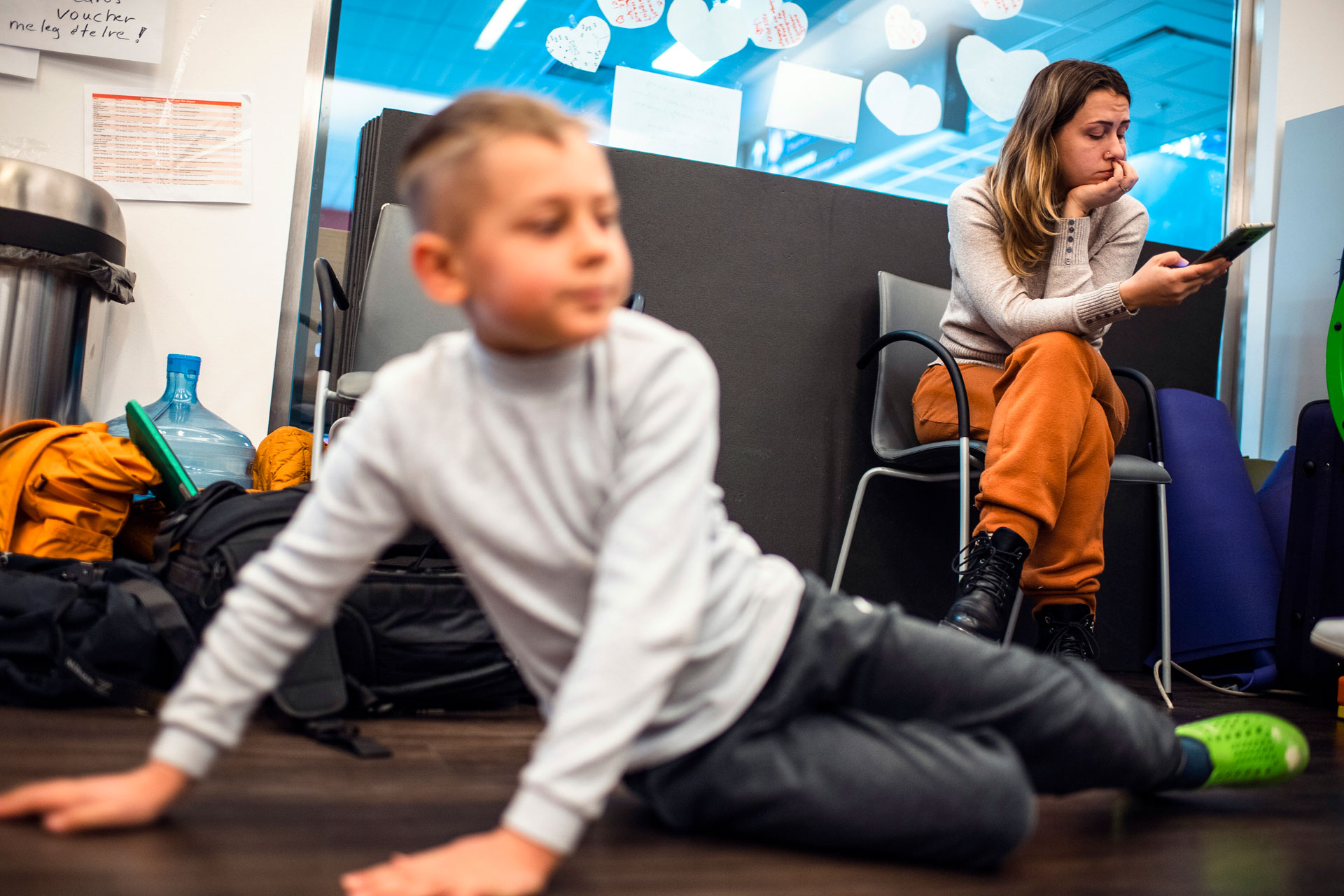
The journey has been long. Kate and the boys left their home in Dnipro on 8 March, and they’ve been on the road and staying with friends for nine days already. Kate says that she had listened to the air raid alerts for four or five days before she made the decision to leave. The boys had already learned to go to the bathroom for cover when they heard the sound.
“I was sitting in my kitchen with friends when we heard yet another alert. That day it lasted for three hours,” she describes.
The following day Kate left with her boys. A few days later they were reading news about air strikes in their hometown.
“I give myself two months”
Daniil and Dmitriy are giggling and piling up colourful blocks to build a tower in the corner of the playroom. By accident, they place a blue and a yellow block next to each other, and for a moment, the highest part of the tower boasts the colours of Ukraine.
Kate is glad to see the boys busy. Fortunately, they didn’t need to witness nor experience the destruction of the war in their hometown, but they’ve seen photos and videos of the aftermath from all around Ukraine.
According to Kate, the children don’t quite understand the situation. The activities in the playroom at the Budapest Airport have made the morning easier for the mother. What seems to concern the boys most at the time of the interview is the flight ahead.
“It’s their first. They’ve been asking the entire morning when, when, when, when is the time to board,” Kate says, shaking her head.
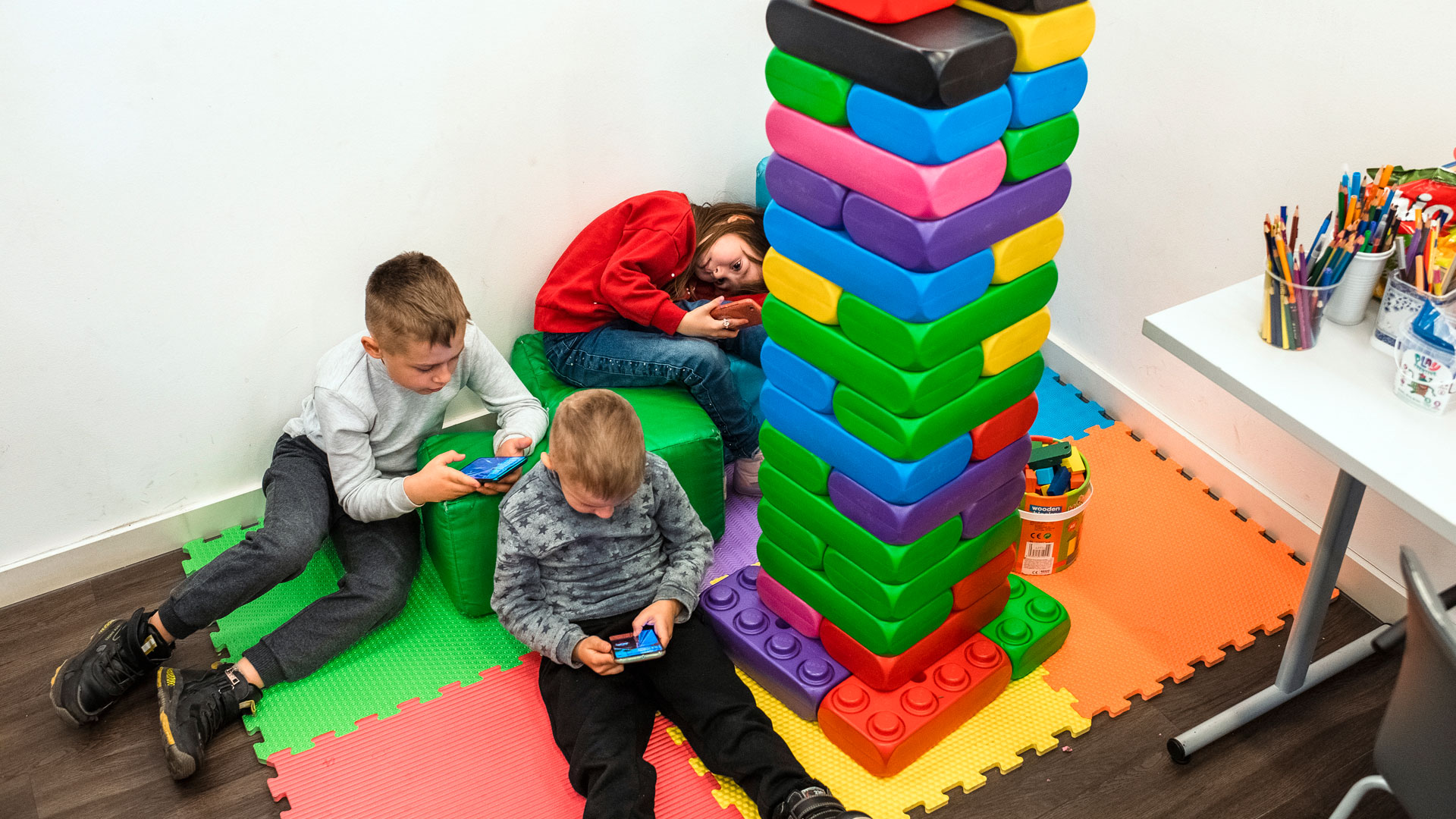
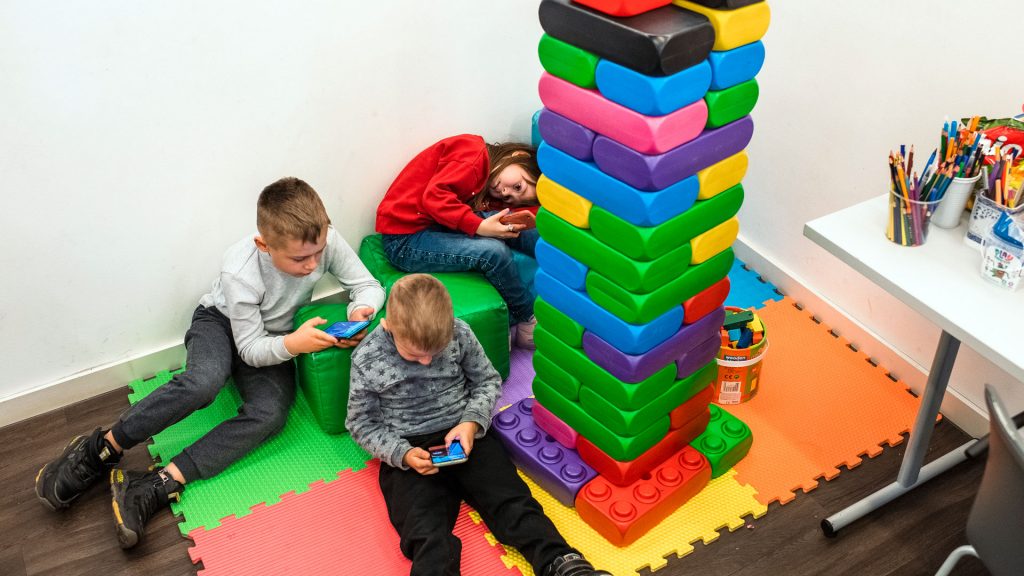
The family is headed towards Turkey, where friends are waiting. They’re promised to let Kate and the boys stay for a month or two.
“I’ve decided to give myself two months,” Kate says.
After that, she’ll have to make a decision. Either she’ll get her documents sorted, look for a job in Turkey, and send her children to a Russian-speaking school – or return to Ukraine.
Her older son Daniil is on his second year of school already, but his schooling was cut short when the war started. The teacher has given classes remotely on Zoom every now and then, and Daniil has taken part, depending on the circumstances and connections.
School books were left behind in Dnipro, but the boy has used a notebook for his assignments. Kate deems education important but also says that it’s not the most pressing matter on her mind right now. First, she’ll need to find a safe place for her family, so she can give her mind a moment of rest.
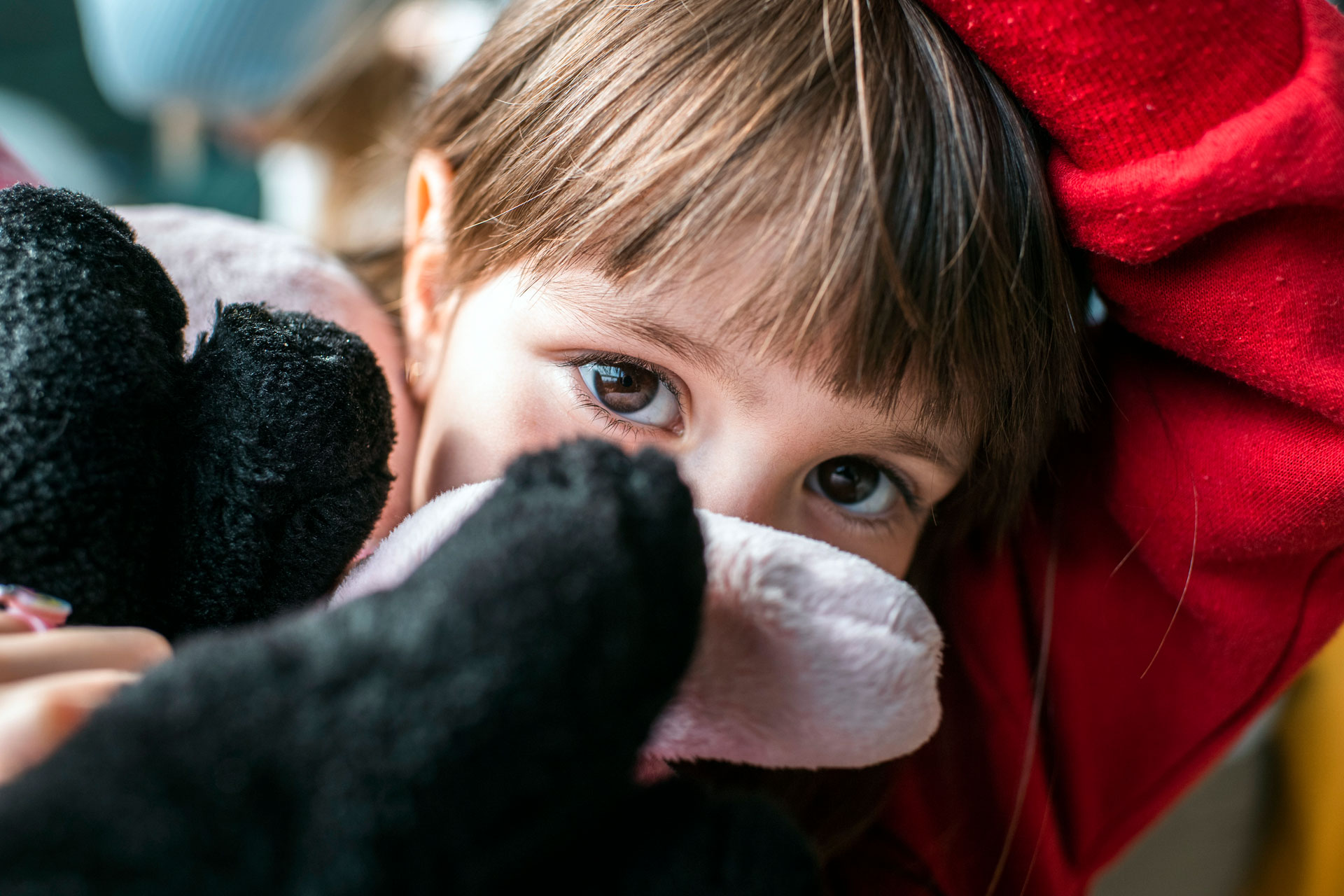
Schools suffer from war
The impact of the war on children’s schooling is immense. Classes haven’t been run normally in Ukraine after the war started. Almost 500 schools in Ukraine have suffered damages due to bombing and shelling, and according to estimates, 69 of them have been completely destroyed.
Maryanna, the girl who showed us the contents of her backpack, says she already misses going to school. She speaks excellent English and says English and math are her favourite subjects. She misses her friends the most.
“I have a lot of friends in Odessa, but now my best friend is in Germany.”
Maryanna’s teacher, too, organises remote teaching on Zoom. Maryanna has taken part in the classes as best she can, but it hasn’t always been possible. The long escape took the family first from Odessa to Lviv in western Ukraine, then Krakow and on to Budapest.
After the interview, Maryanna, her sister, mother, and grandmother are going to fly to Bulgaria, where their plan is to settle by the coast of the Black Sea for a while. Her father and grandfather are waiting for the women of the family.
Maryanna believes the family will return to their home in Odessa eventually.
“But it’s a good idea to go to Bulgaria, because our Black Sea is there. There we’ll be close to Ukraine.”
An entire life in a single suitcase
A few hours later, Maryanna’s little sister Yelizaveta and Kate’s boys Daniil and Dmitriy are sitting in the corner of the playroom, playing with phones. The phone in the hand of 5-year-old Dmitriy vibrates, and he takes it to his mother.
“An air alert in Ukraine,” Kate reads, shaking her head, and gives the phone back to her son.
Kate opens the suitcase slightly and takes out a toothbrush and toothpaste. She nips to the airport loo to brush her teeth, puts the boys’ Crocs sandals in a plastic bag, and closes the suitcase.
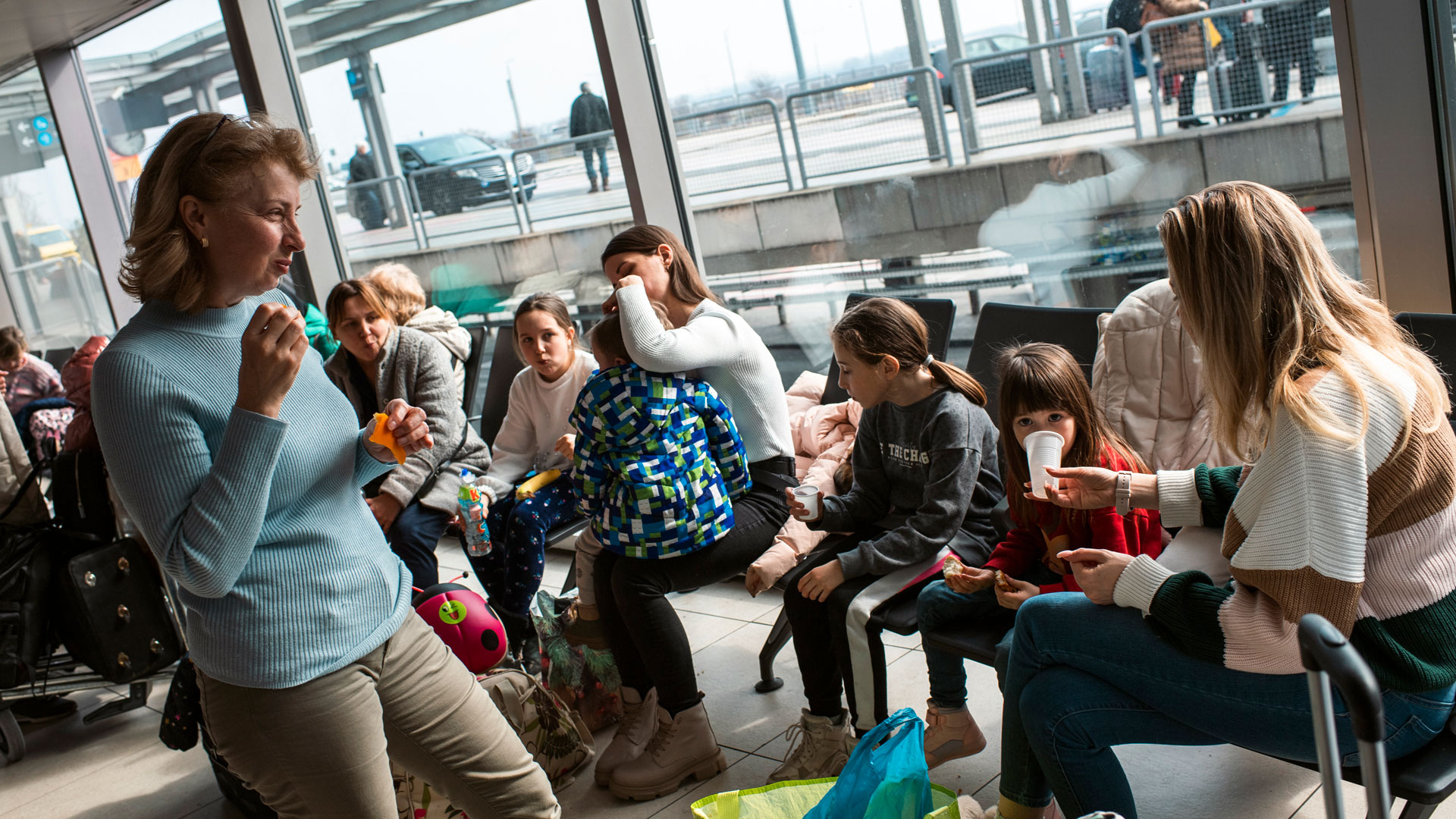
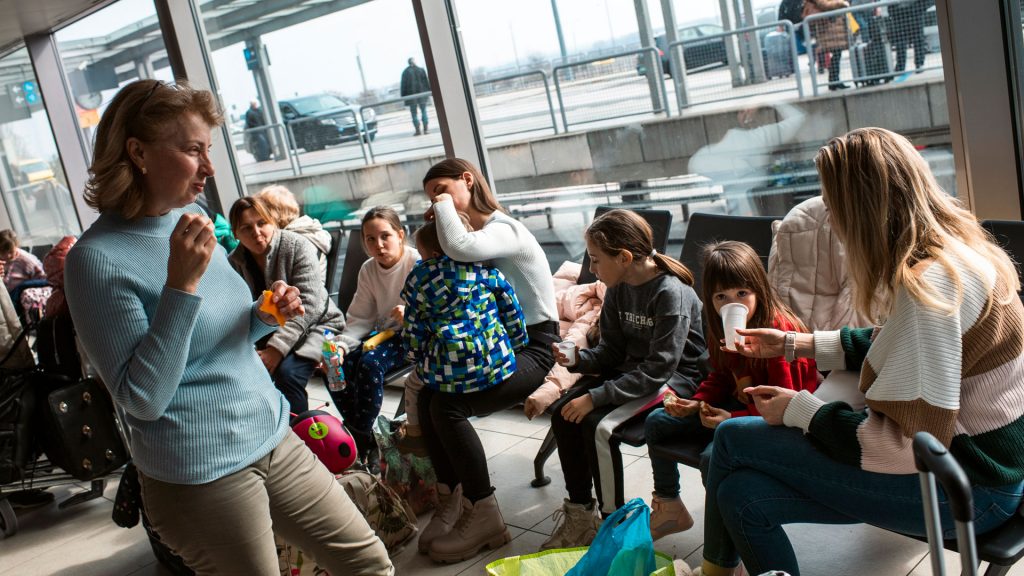
Kate has packed some of the family’s things in two plastic bags, because everything packed in just one suitcase exceeded the airline’s weight limit for luggage. In total, the luggage for the three-strong family – a suitcase and two plastic bags – weighs to the tune of 30 kilograms.
Soon it’s time to go. The boys put on their coats, and the family heads towards passport control. Kate hugs us, and we wish them luck for the journey.
I recall her earlier words. If things take a turn for the better, Kate and the boys will return to Ukraine.
“If it’s safe, if our schools are like they used to be. They might bomb a school tomorrow. Too many schools have been targeted.”
Text: Ulriikka Myöhänen
Photos: Antti Yrjönen
FCA is helping refugees in Ukraine and Hungary
- FCA works in Ukraine and Hungary in collaboration with its partner organisation, Hungarian Interchurch Aid. By the end of March, FCA have granted 500 000 euros to support the work.
- Our work is situated in Lviv and Berehove in the west of Ukraine. Additionally, we offer support in the Hungarian village of Barabás, refugee shelters in Budapest, and the playroom for children at the international airport in Budapest.
- We offer humanitarian emergency aid to families who’ve left their homes. In practice, this means food, drink, and hygiene products. The aid is delivered to local refugee shelters and offered at border crossings between Hungary and Ukraine.
- In addition to urgent immediate aid, we are currently working on providing refugee children with opportunities to continue their schooling.
